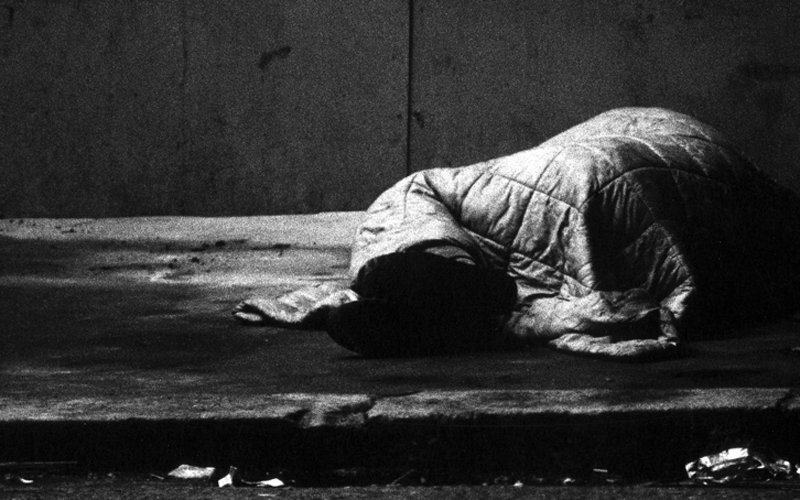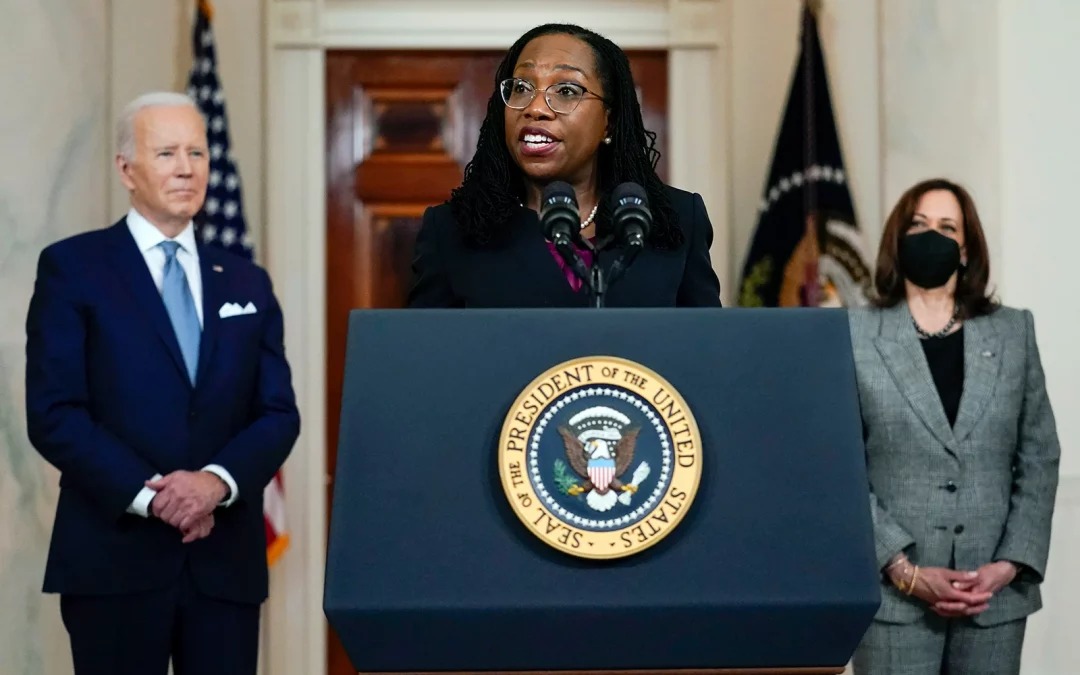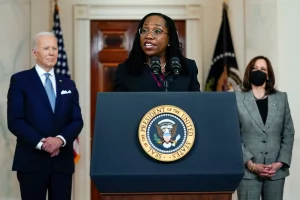by Allen Reynolds, UrbanFaith Editor | Apr 28, 2022 | Headline News, Social Justice |
No one can deny that our nation is angry, hurt and frustrated due to the senseless violence that continues to plague us; however, the way we address today’s issues is absolutely critical, particularly for us as Christians. Here are a few suggestions on how we can respond to the violence and pain through active faith.
 Pray in unity.
Pray in unity.
Now, more than ever, the church is commanded to pray in unity. In Matthew 18, Jesus emphasizes the importance of collective spirituality by saying, “If two of you agree here on earth concerning anything you ask, my Father in heaven will do it for you. For where two or three gather together as my followers, I am there among them.” Yes, times are tough and you may find it difficult, but praying together not only obeys these words of Christ, but also serves as a powerful tool of encouragement and reminds us that we are not alone in the struggle. Besides, Christianity is a communal faith, and historically, many African and African-influenced cultures have always valued collective spirituality. Most importantly, we must remember that we serve a God who answers prayer, not always in the ways we expect, but always effective according to His will!
Educate yourself and others.
Hosea 4:6 declares, “For my people perish for lack of knowledge.” In order to actively address today’s issues, it is absolutely critical that we are prepared, both spiritually and intellectually. Take the time to educate yourself on the laws, procedures and government systems that affect both you and your family. However, it is just as important to equip yourself with Scriptures that will assist you in learning strategies that respect government while actively advocating against injustice and violence. Throughout the Bible, Jesus teaches us the importance of knowing your rights as both citizens of your home country and citizens of God’s kingdom. (Matthew 22:15-22, Luke 4:38-53, Mark 3:1-6) It is imperative that you know your rights in order to prevent them from being violated.

Be persistent and hopeful in seeking justice.
In Luke 18, Jesus tells a parable that is not often shared among members of the Church. It is a parable about a persistent woman who goes to a judge to receive justice. Although he is not righteous, the judge gives the woman justice because of her persistence. As Christians, will we have enough faith to be persistent and seek God, even when dealing with a broken and unrighteous government?
The call to action here is clear. Keep seeking justice, even in a broken system, because the persistence will eventually bring about change.
Love your neighbor.
In the midst of all that is going on, this is the key. We have to choose to love our neighbors the way God loves (Matthew 22:38-39). We must love because we have been shown love, even when it is uncomfortable and inconvenient. Showing acts of love to our neighbors, particularly to those who historically have not always shown love in return, will begin to build the bridges across the ravines of fear that divide our nation and lead to the violence in the first place.
It is important to see here that love covers a multitude of sins, the sins that separate us from one another and God. Fear drives a lot of the sin of violence in this nation. It is the fear that we will keep killing one another, fear that things will not change, fear between races, and fear within communities. However, it is perfect love that casts out all fear (1 John 4:18). As Dr. Martin Luther King Jr. said, “I have decided to stick with love. Hate is too great a burden to bear.”
Share your thoughts on the recent violence and your plan of action as a Christian in today’s society below.

by Andrew Wilkes | Mar 2, 2022 | Headline News |
 During Lent, we commemorate the life, death, and resurrection of Jesus the Christ. As if it were New Year’s Eve, most Christians make a Lenten resolution, consecrate it with prayer, and stick it out until Easter. Our concern for particularity in this moment, while laudable, can prevent us from grasping — and being grasped by — a broader sense of mission. The immediacy of figuring out, “What am I going to give up?” can prevent us from asking, “What sort of person is God calling me to be within the church and the world?” The first question pivots around our personal aspirations; the second one opens up a vista of service and mission. Developing the latter theme, we might approach Lent as an opportunity to embrace the care of Christ and emulate his ministry of coming alongside and caring for the least of these.
During Lent, we commemorate the life, death, and resurrection of Jesus the Christ. As if it were New Year’s Eve, most Christians make a Lenten resolution, consecrate it with prayer, and stick it out until Easter. Our concern for particularity in this moment, while laudable, can prevent us from grasping — and being grasped by — a broader sense of mission. The immediacy of figuring out, “What am I going to give up?” can prevent us from asking, “What sort of person is God calling me to be within the church and the world?” The first question pivots around our personal aspirations; the second one opens up a vista of service and mission. Developing the latter theme, we might approach Lent as an opportunity to embrace the care of Christ and emulate his ministry of coming alongside and caring for the least of these.
Embracing the care of Christ can be painful, for it often requires a prior admission that we are wounded. Many recent college graduates work hard to secure employment and repay loans, only to experience job loss, a reduction of responsibility, or another economic shift causing them to move back in with their parents. They are wounded. Some 222,000 veterans have returned from Iraq to a jobless recovery, a gridlocked Congress, and employers who cannot grasp the relevance of leadership skills honed in a military context. They, too, are wounded.
Our individual ailments differ, but we share an Augustinian solidarity. The bishop of Hippo suggests that we are Good Samaritans, called to love across differences of race, class, religion, and other social realities. Yet we are also recipients of God’s boundary-bursting, Samaritan love — Jesus found us by the side of the road, bandaged our wounds, and nursed us into wholeness by the power of his Holy Spirit.
As a community whose health has been and is being restored, Christ calls us to tend to the social ills of his people and all people. Matthew 25:31-46, in particular, underscores the importance of feeding the hungry, clothing the naked, visiting those who are in prison, and welcoming the stranger.
By caring with and for society’s most vulnerable members — Jesus calls them “the least of these” — we bear witness to the in-breaking of God’s kingdom in Christ. We embody his love by performing acts that immediately address the maladies of drug addiction, domestic violence, and chronic sickness. Moreover, our engagement in intermediate, systems-transforming work on behalf of the least of these — inmates, immigrants, gay and lesbian military personnel, and so on — testifies to the restorative justice of God’s kingdom in Christ.
Such care, whether personal or structural, does not itself build or establish God’s kingdom. To claim that it does collapses human initiative into divine work (making devils out of those who may oppose it for well-argued reasons) and, more dangerously, runs the risk of idolizing the stratification of power that enables such change (e.g., relief and development arms of denominations or national governments become sacrosanct instruments beyond critique). Our individual and collective care for “the least of these” represent necessary and yet feeble attempts to follow in the footsteps of our Lord who prioritized the marginalized in his ministry. Our call is not about politics, not about ideology, but about modeling the love and justice of Christ. Cornel West has famously remarked that, “Justice is what love looks like in public.” What does our Christian faith look like out on the street?
Lent reminds us that the church’s social service and justice-making efforts fall short of God’s glory, that our best attempts to repair the world are still broken, leading us to depend anew on the care of Christ. We are weak, but the consolations of our Lord are strong; through him we discover the strength to love, the power to carry on.

by Allen Reynolds, UrbanFaith Editor | Mar 1, 2022 | Headline News |

WASHINGTON (RNS) — Immediately after President Joe Biden introduced Judge Ketanji Brown Jackson as his nominee to the U.S. Supreme Court at a White House event on Friday (Feb. 25), the federal appeals court judge stepped up to the podium and appealed to the divine.
“I must begin these very brief remarks by thanking God for delivering me to this point in my professional journey,” she said. “My life has been blessed beyond measure, and I do know that one can only come this far by faith.”
Jackson’s words marked the beginning of what promises to be a historic confirmation process: If approved by the U.S. Senate, Jackson, 51, who currently serves on the D.C. Court of Appeals, would be the first Black woman to serve on the Supreme Court.
“If I’m fortunate enough to be confirmed as the next associate justice of the Supreme Court of the United States, I can only hope that my life and career, my love of this country and the Constitution, and my commitment to upholding the rule of law and the sacred principles upon which this great nation was founded, will inspire future generations of Americans,” she said.
Biden noted the landmark nature of Jackson’s nomination during his introduction, making good on a campaign promise to push for a Black woman on the country’s highest court.
“For too long, our government, our courts, haven’t looked like America,” he said. “I believe it’s time that we have a court that reflects the full talents and greatness of our nation with a nominee of extraordinary qualifications. And that we inspire all young people to believe that they can one day serve their country at the highest level.”
While outlining Jackson’s professional credentials and personal story — such as her two Harvard degrees and family members in law enforcement — Biden argued that she “strives to be fair, to get it right, to do justice.”
If confirmed, Jackson would also be the first federal public defender on the Supreme Court and would bring the total number of women serving on the bench to four — the most in U.S. history.
Jackson did not mention a specific faith tradition in her remarks, so it was not immediately clear whether she would alter the religious makeup of the Supreme Court, which currently consists primarily of Catholic and Jewish justices (Justice Neil Gorsuch was raised Catholic but attended an Episcopal Church in Colorado).
Lawmakers and liberal religious organizations celebrated Jackson’s nomination.
“I applaud the historic nomination of Judge Ketanji Brown Jackson to the Supreme Court. Georgians want a nominee who is fair, qualified, and has a proven record of protecting Americans’ constitutional rights and freedoms. I look forward to reviewing this nomination,” Georgia Sen. Raphael Warnock, himself a pastor, said in a statement.
Longtime racial justice activist the Rev. Al Sharpton, who runs the National Action Network, tweeted out a statement of support for Jackson, calling her “exceptionally well qualified” and possessing the “experience, character, integrity, and dedication to the Constitution and the rule of law to serve on the nation’s highest Court.”
The National Council of Jewish Women also praised Biden’s choice of Jackson.
“As the only national Jewish organization which actively vets and endorses federal judicial nominees, NCJW follows the guidance of our tradition which affirms the importance of having ethical, unbiased judges like Judge Jackson who will fight for justice for everyone each and every day,” the statement read. “Her keen intellect, integrity, background, and lived experience are what we need on the Court.”
Religion has been a point of interest in recent Supreme Court nomination battles, particularly the debate over Justice Amy Coney Barrett. When she was nominated by former President Donald Trump in 2020, many observers questioned whether her conservative brand of Catholic faith would influence how she approached issues such as abortion.
Although Jackson reportedly has not ruled on a case narrowly focused on abortion, her appointment nonetheless drew attention of groups concerned about the issue. Jeanne Mancini, president of March for Life Education and Defense Fund, an anti-abortion group, said in a statement she expects Jackson to be “a reliable vote for the far left and the Biden administration’s radical abortion agenda.”
Meanwhile, Jamie L. Manson, president of Catholics for Choice, which advocates for abortion rights, praised Jackson as a jurist with “a long and distinguished record of legal work and judicial decisions that protect and advance the constitutional rights of marginalized Americans, including women and pregnant people, immigrants, and people with disabilities.”
Manson also made mention of Jackson’s April 2021 Senate confirmation hearing to serve on the U.S. Court of Appeals. Manson said Jackson expressed “a clear and firm commitment to the principle that true religious liberty involves both freedom of and freedom from religion.”
During that hearing, Missouri Republican Sen. Josh Hawley noted Jackson had served on the board of Montrose Christian School. The Maryland school, which has since been closed, operated under a statement of faith that declared “we should speak on behalf of the unborn and contend for the sanctity of all human life from conception to natural death” and outlined a belief that marriage exists only between a man and a woman.
In responding to Hawley, who said he agreed with the statements, Jackson distanced herself from the school’s beliefs. She said she did not “necessarily agree with all of the statements,” and was not previously aware of their existence.
She went on to express support for religious liberty, describing it as a “foundational tenet of our entire government.”
 Pray in unity.
Pray in unity.


 During
During 

 Nobody likes to deal with pain. I am yet to meet someone who desires to sign up to a conference or a webinar that desires to explore the benefits of pain. It is not a norm in our society nor is it a comfortable topic.
Nobody likes to deal with pain. I am yet to meet someone who desires to sign up to a conference or a webinar that desires to explore the benefits of pain. It is not a norm in our society nor is it a comfortable topic. In a world where everyone has an opinion of what justice is, and what is wrong seems to be appealing and receiving the most media attention, as believers, it is very encouraging to know God’s pure intention and desire for what true justice is.
In a world where everyone has an opinion of what justice is, and what is wrong seems to be appealing and receiving the most media attention, as believers, it is very encouraging to know God’s pure intention and desire for what true justice is.